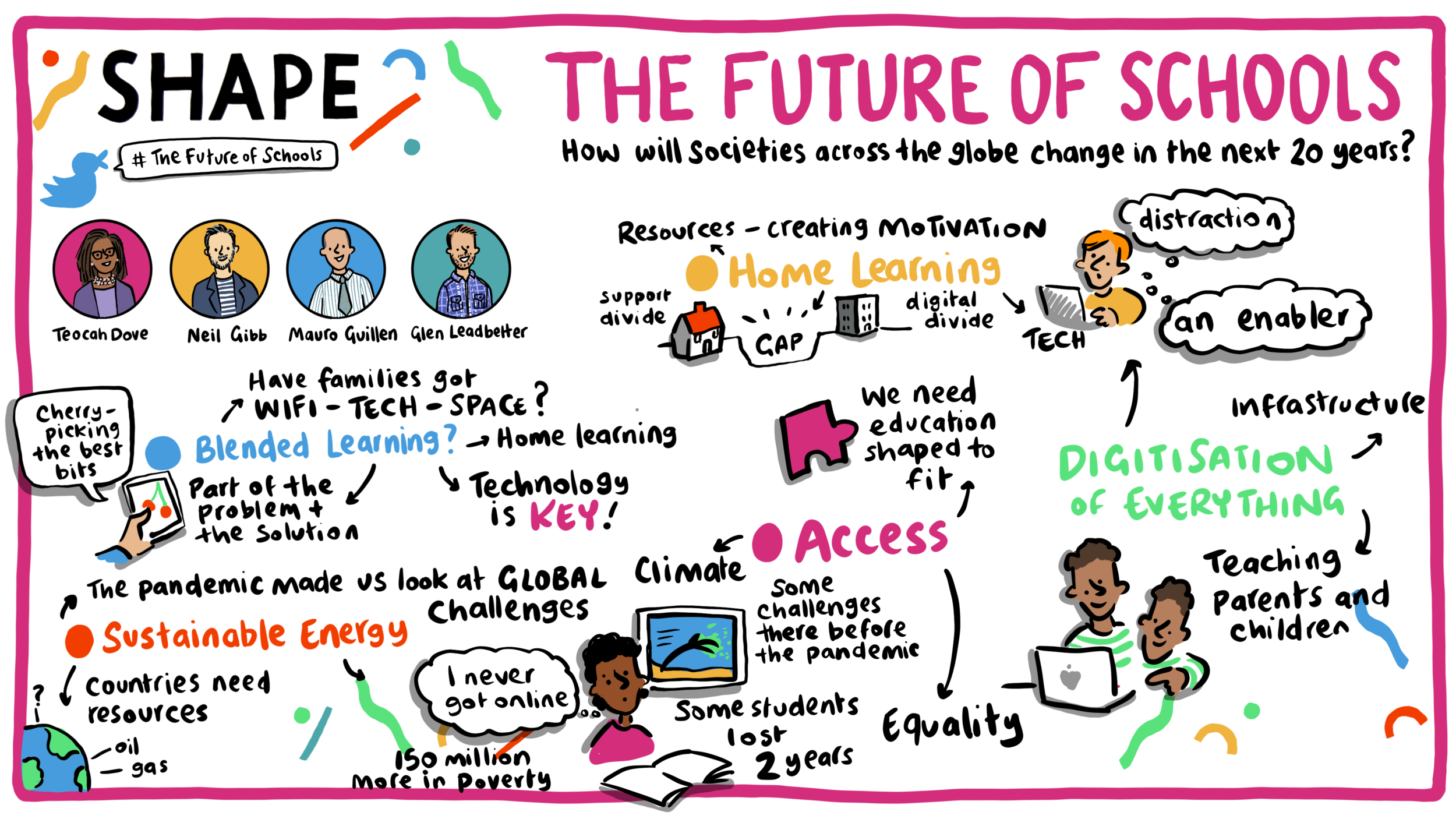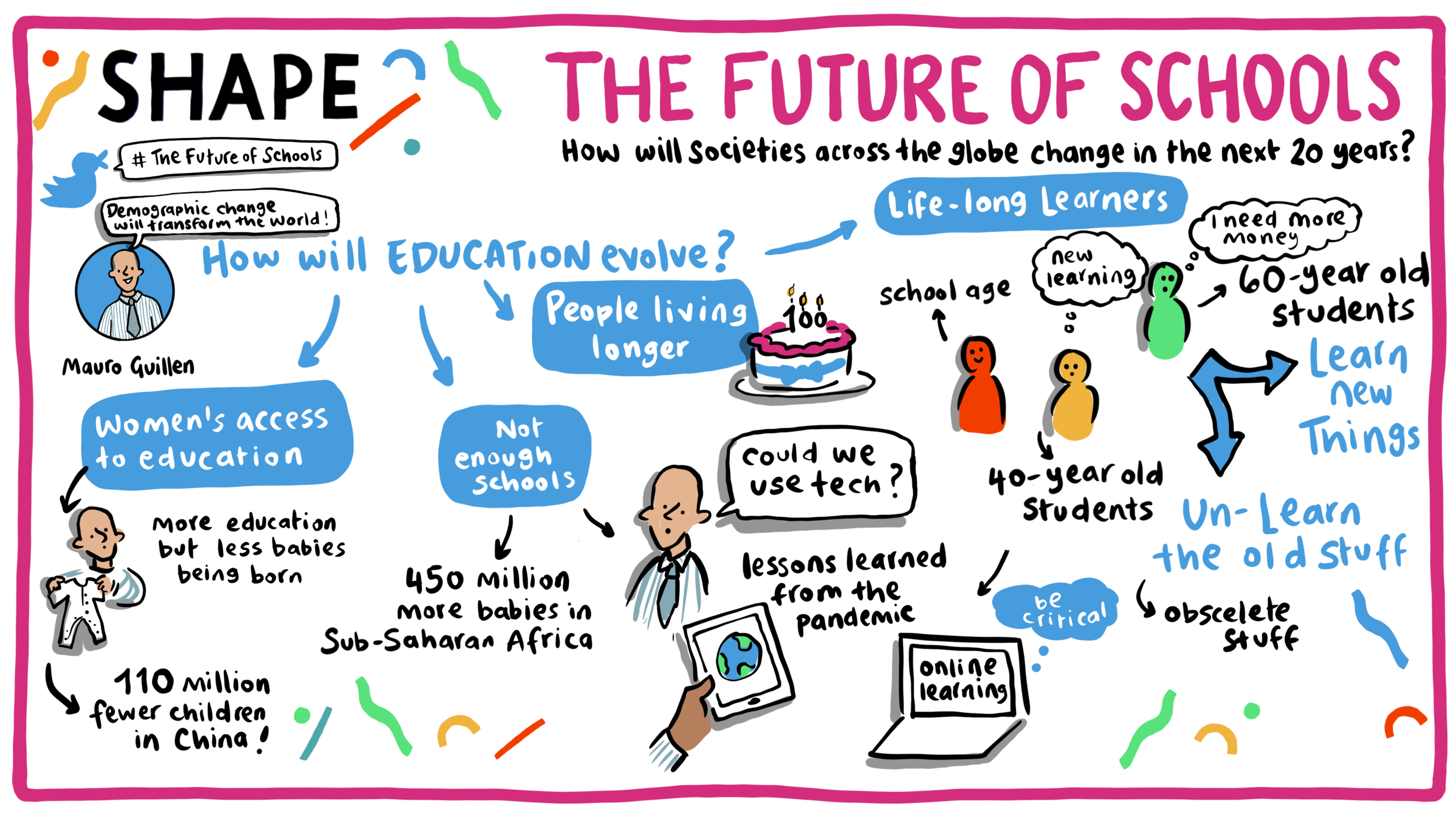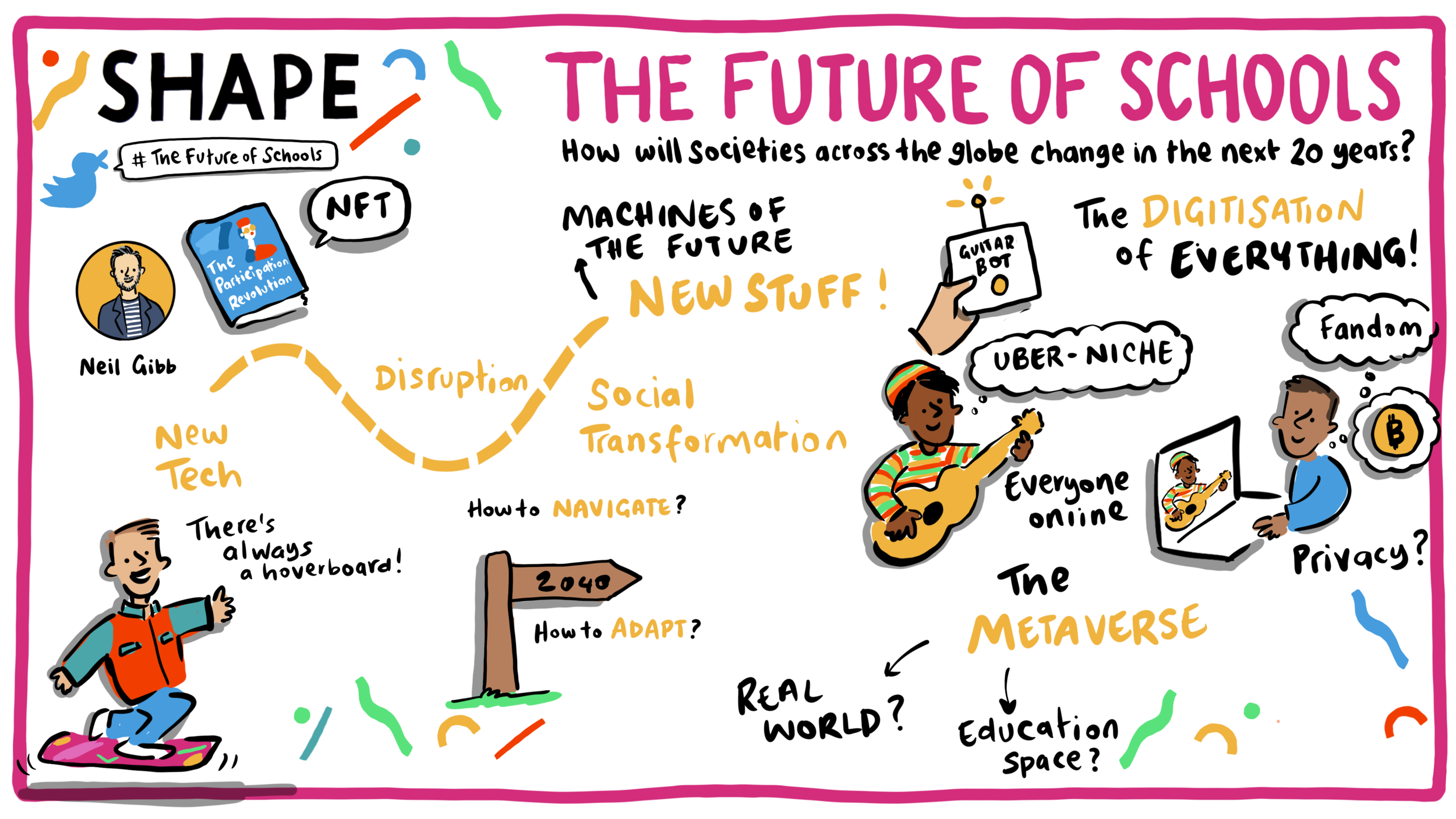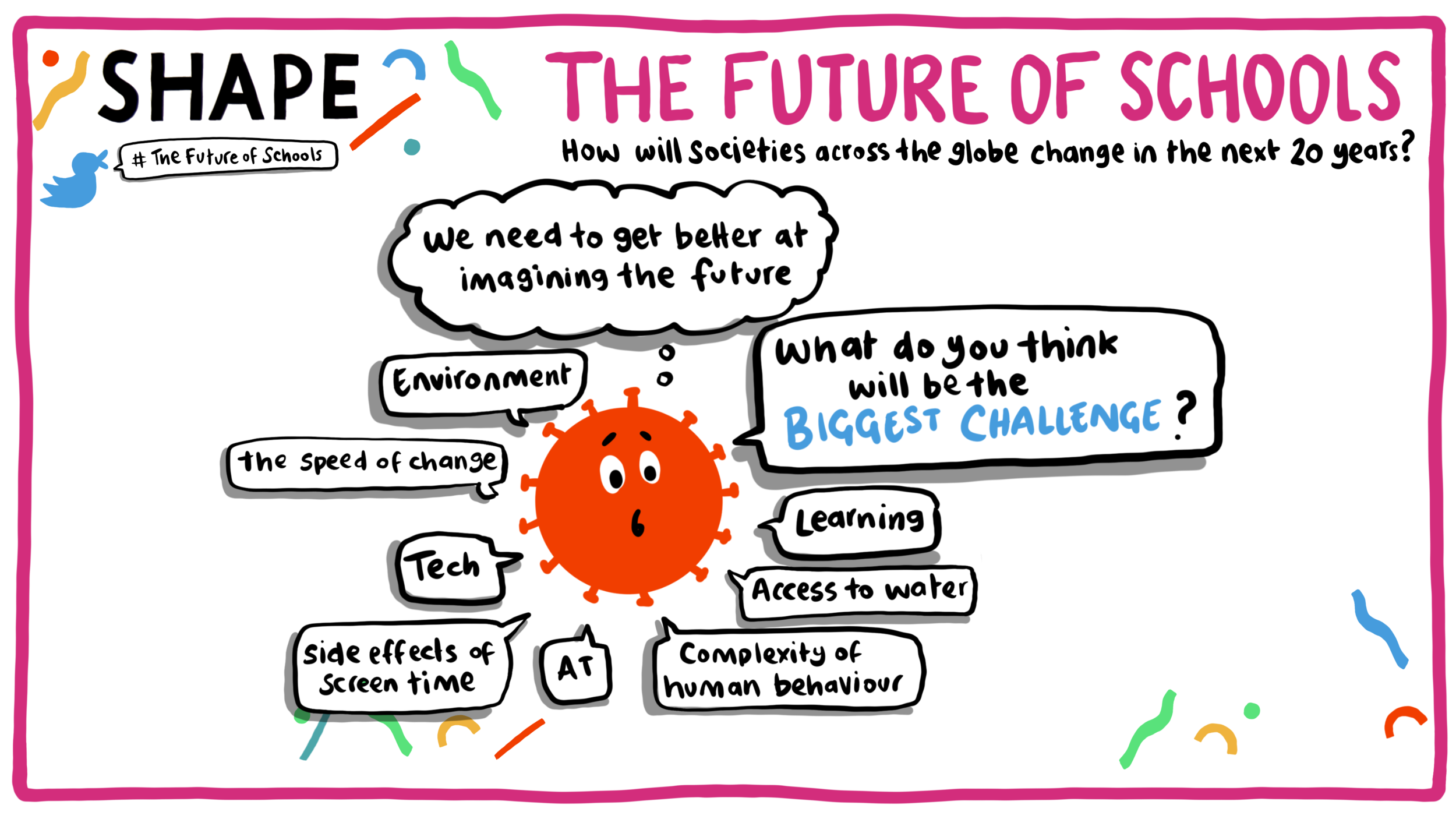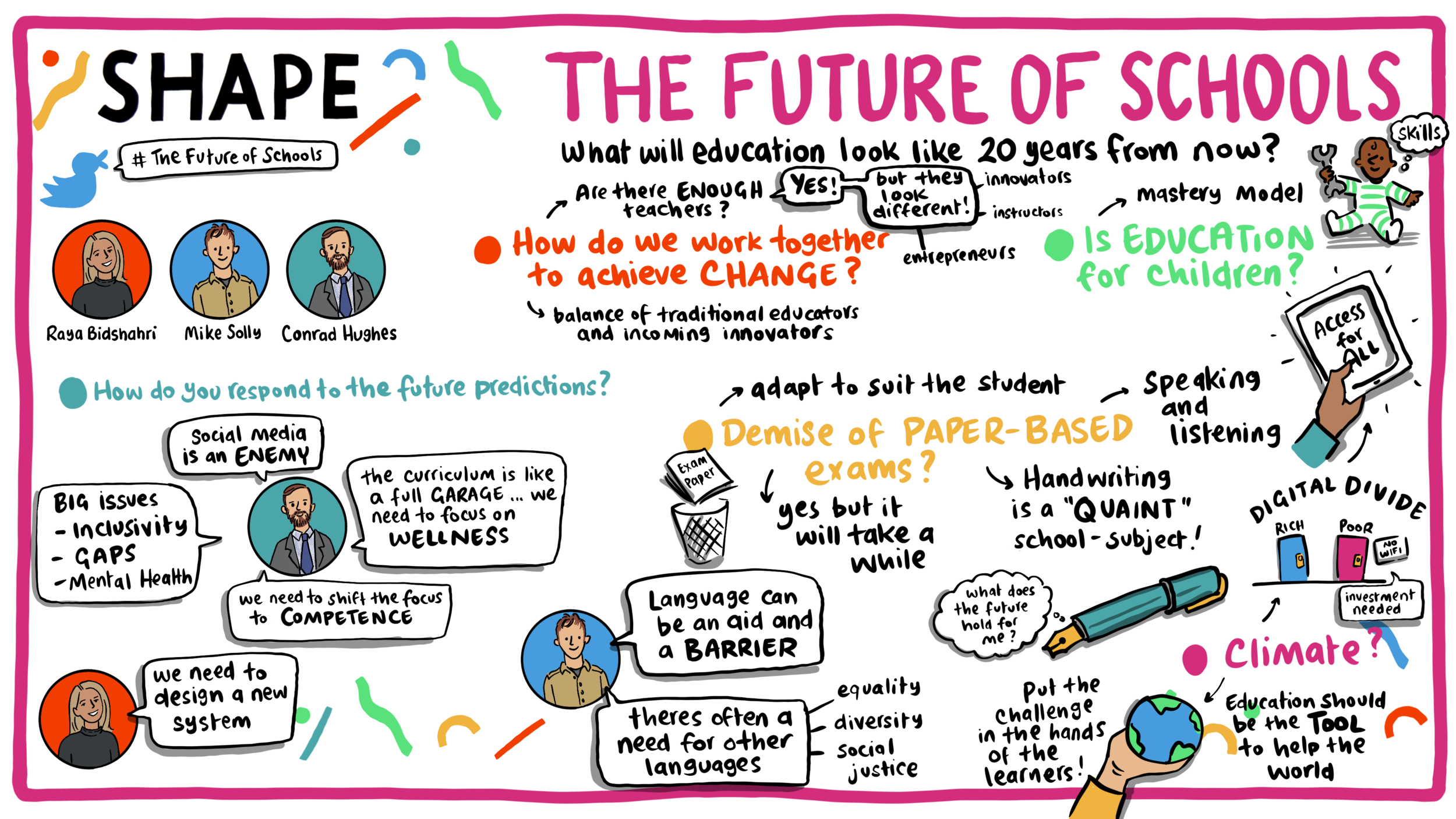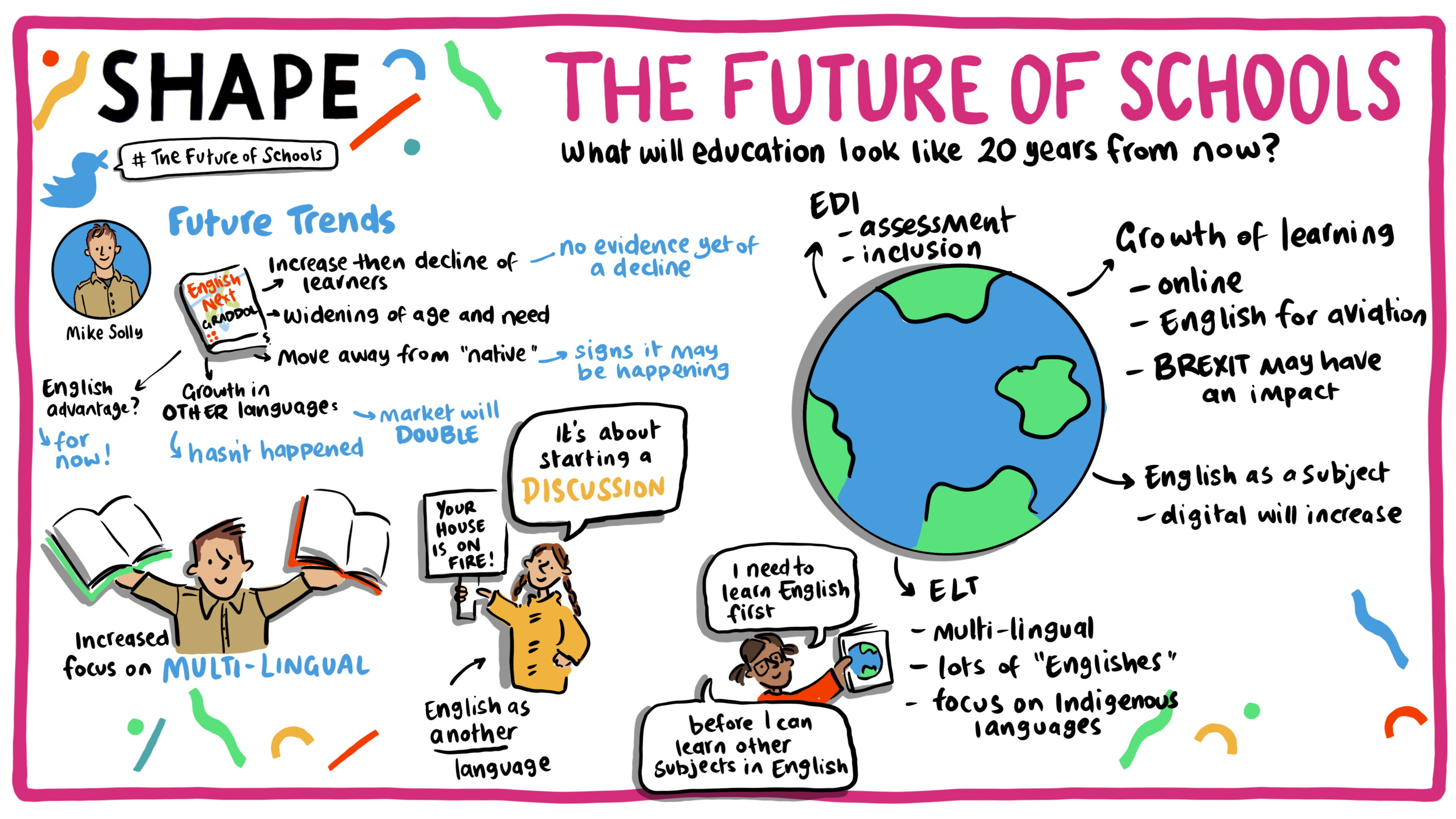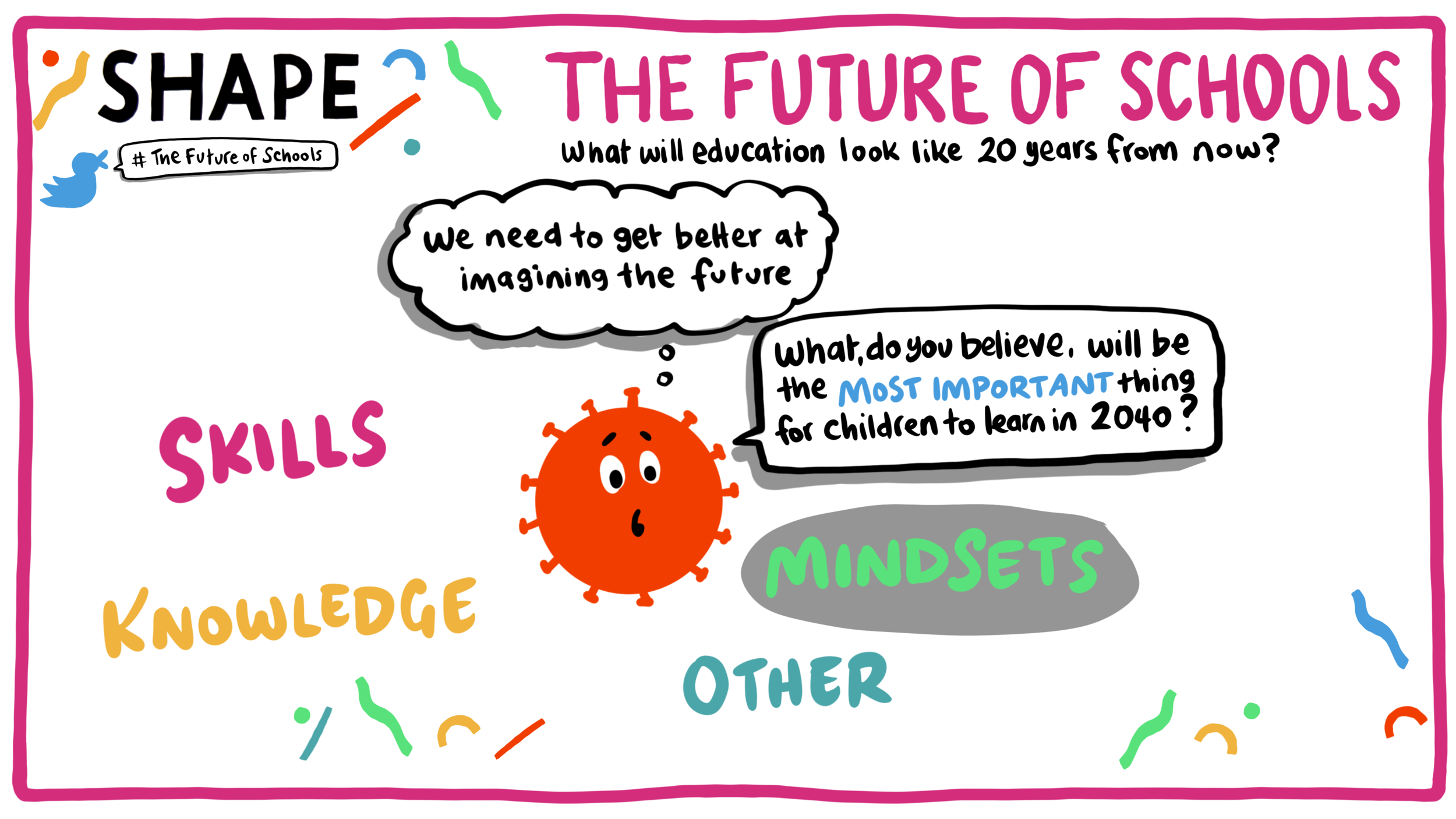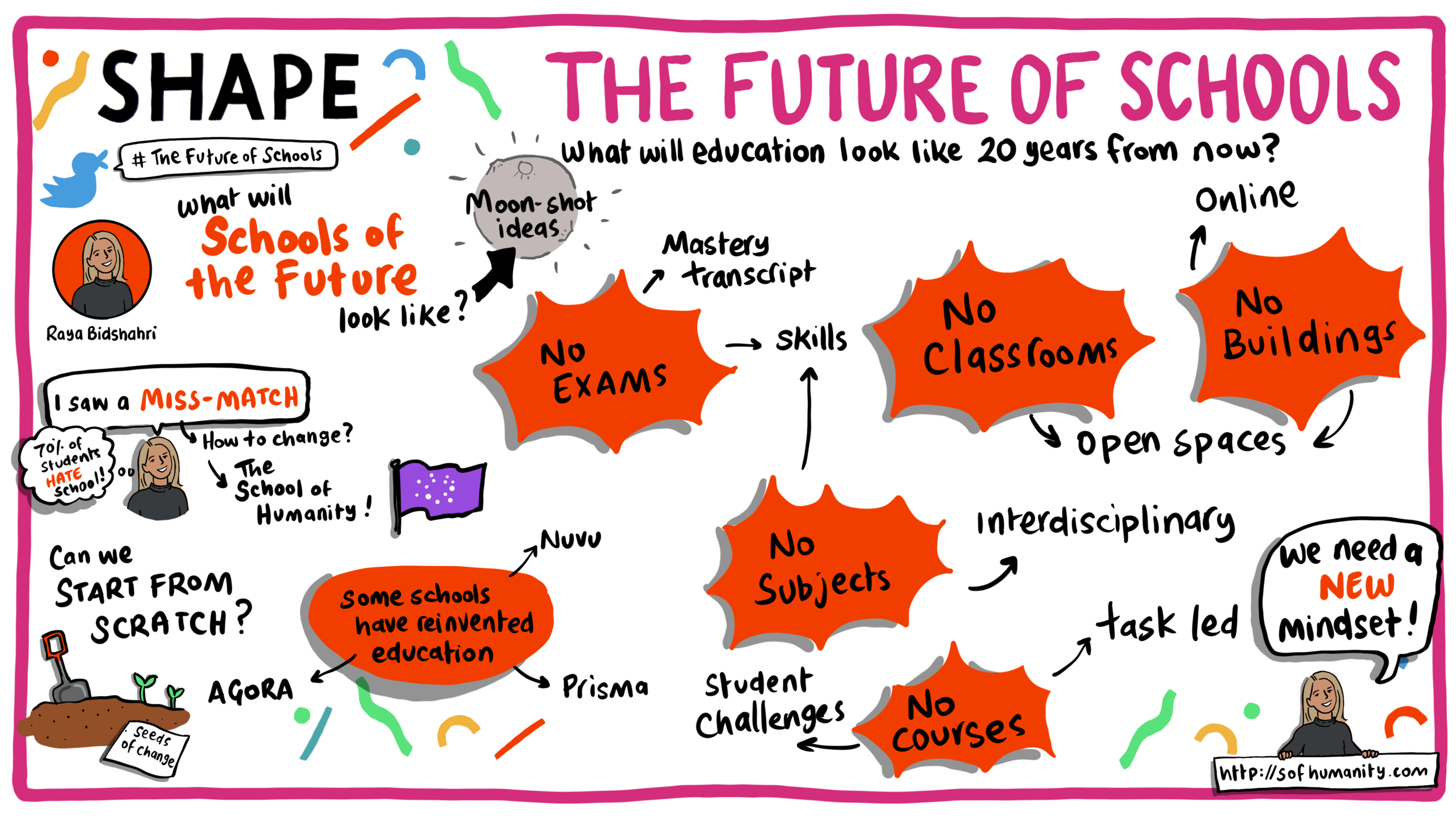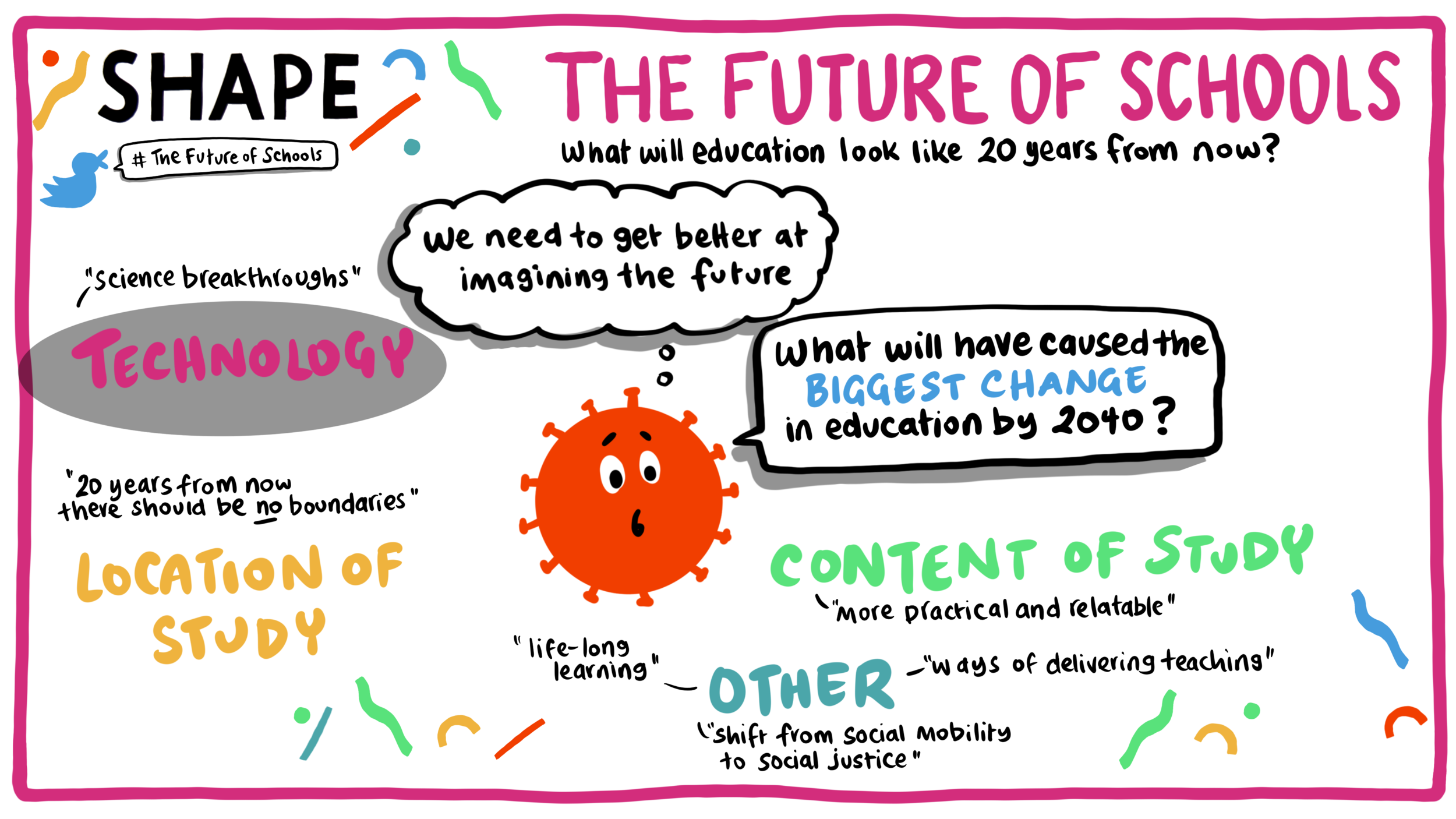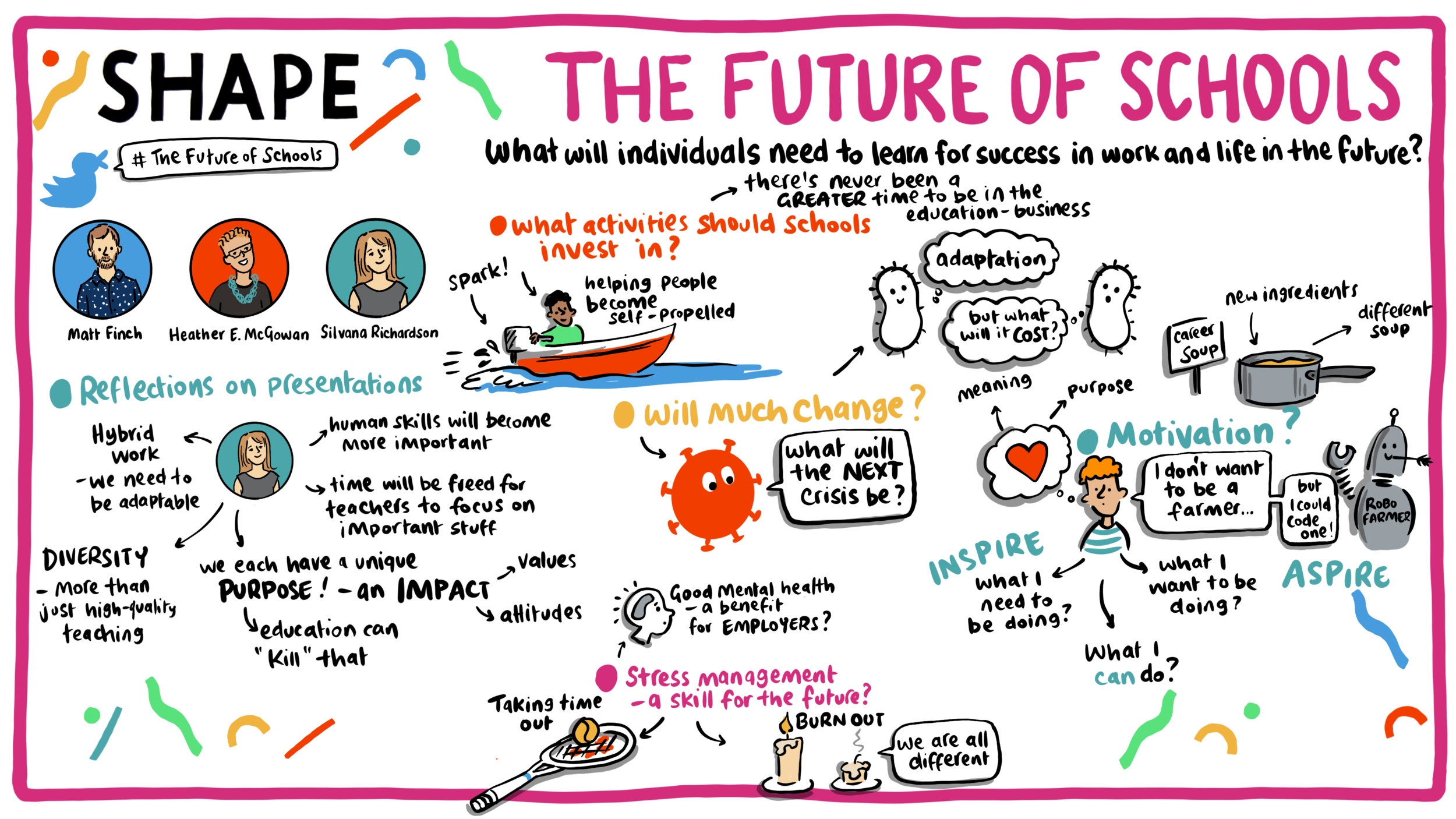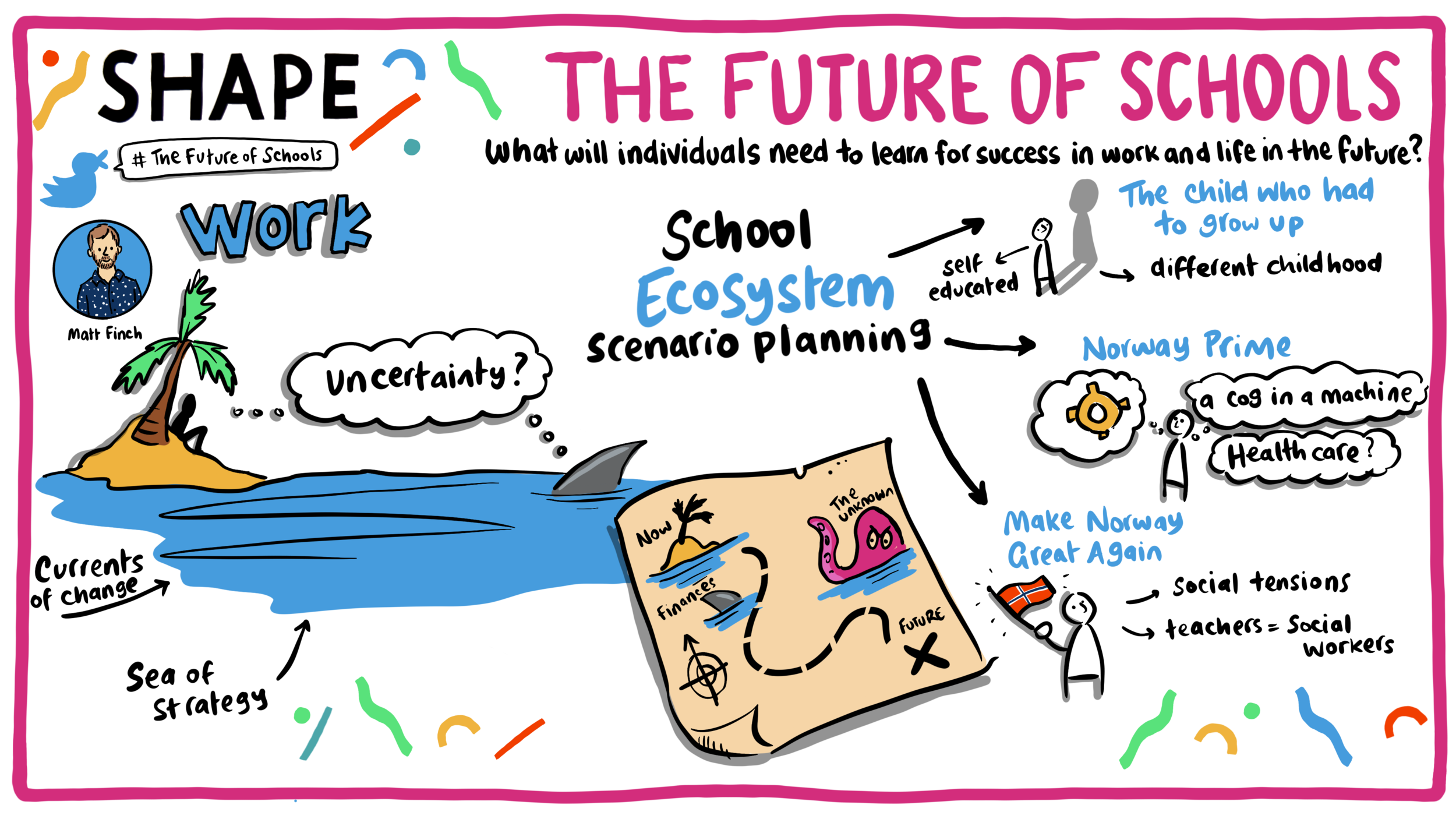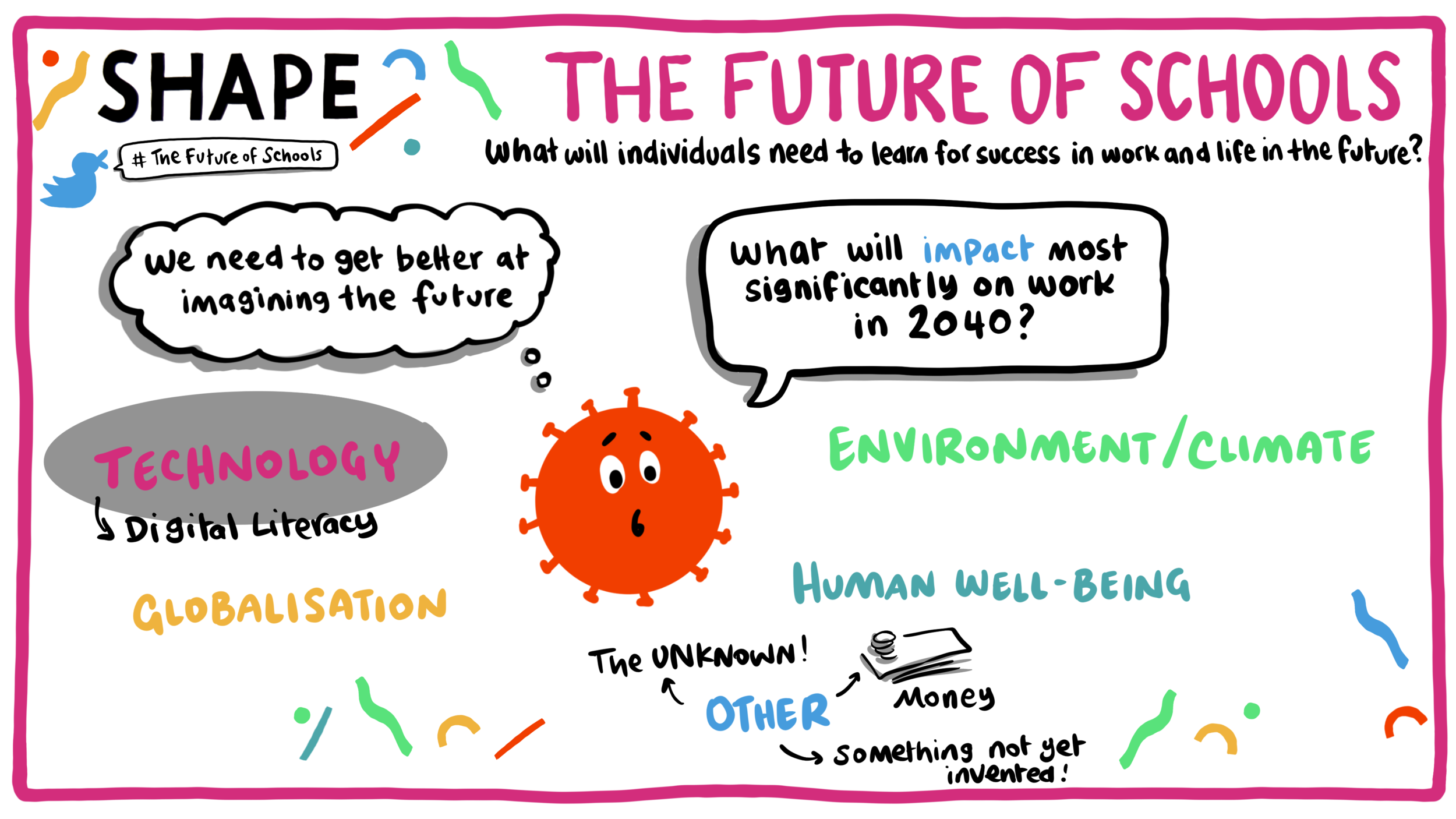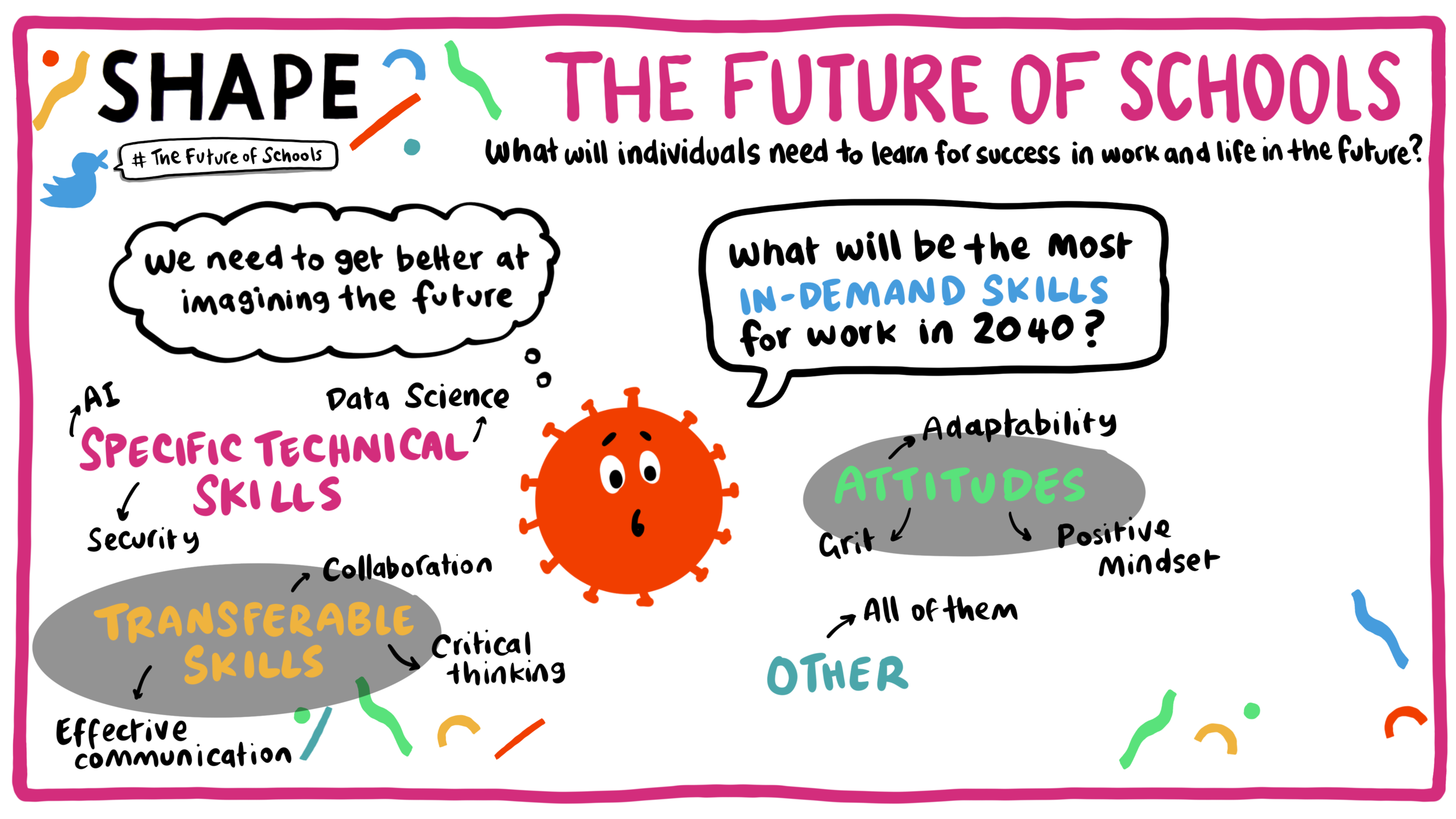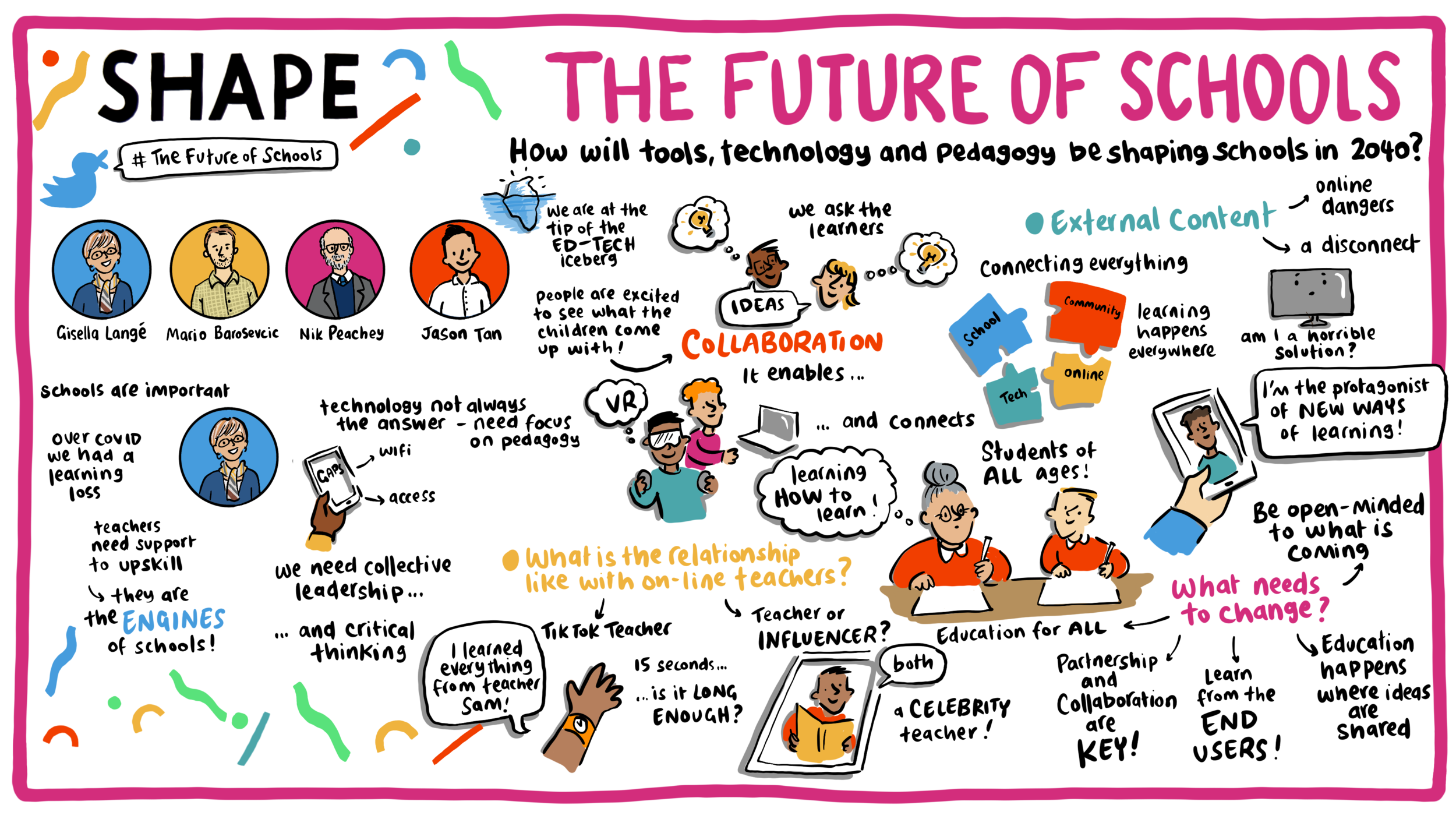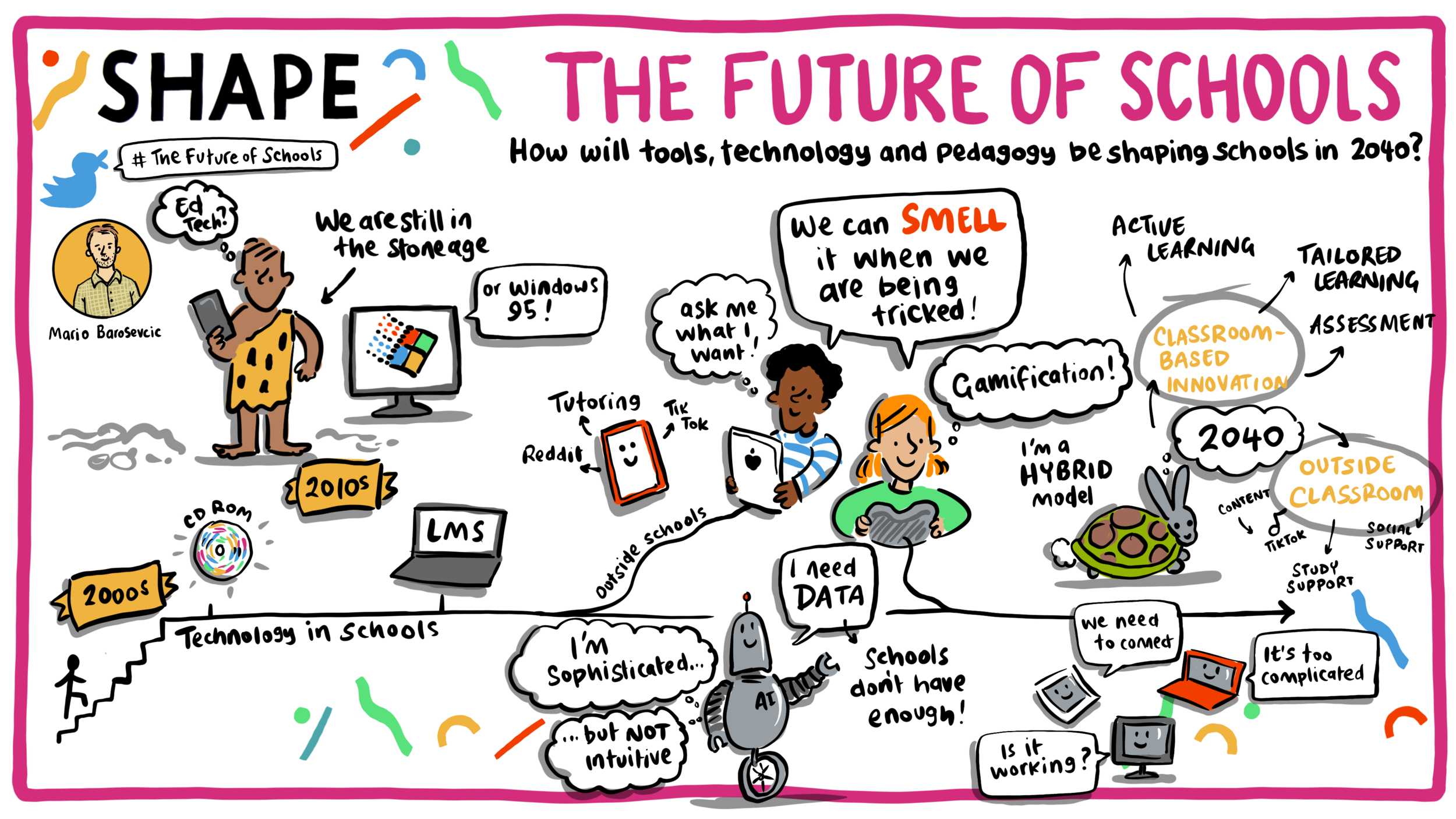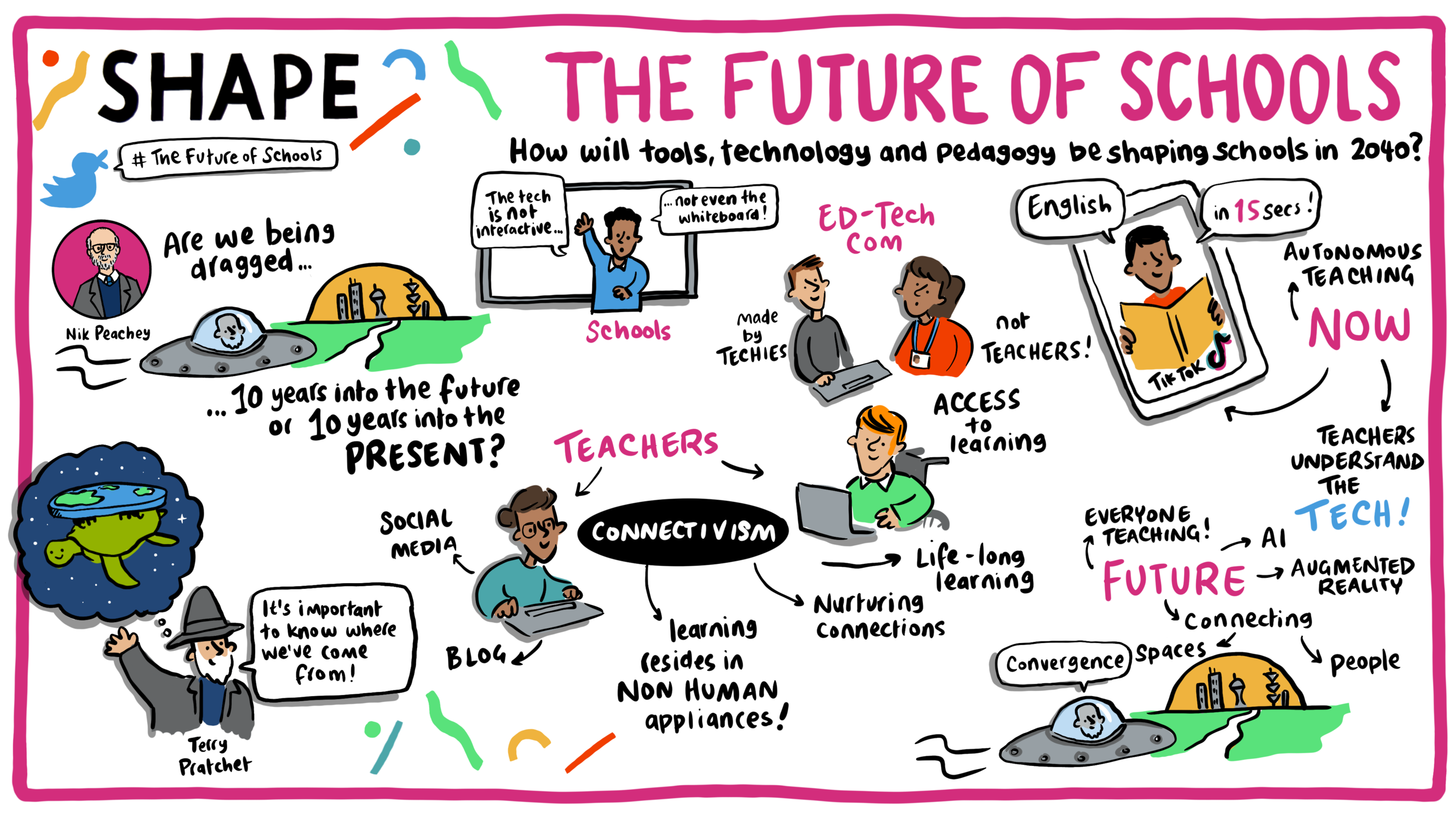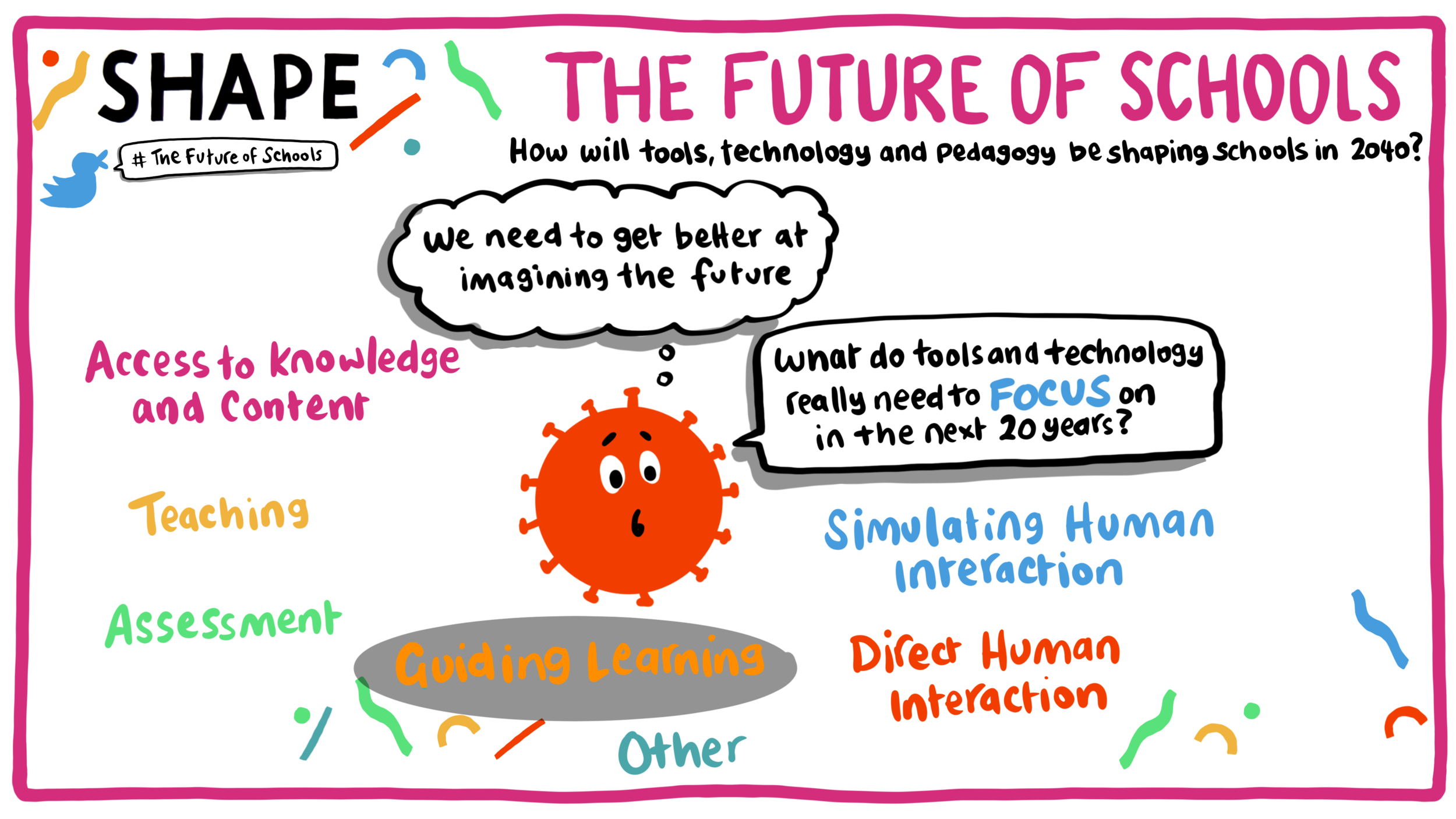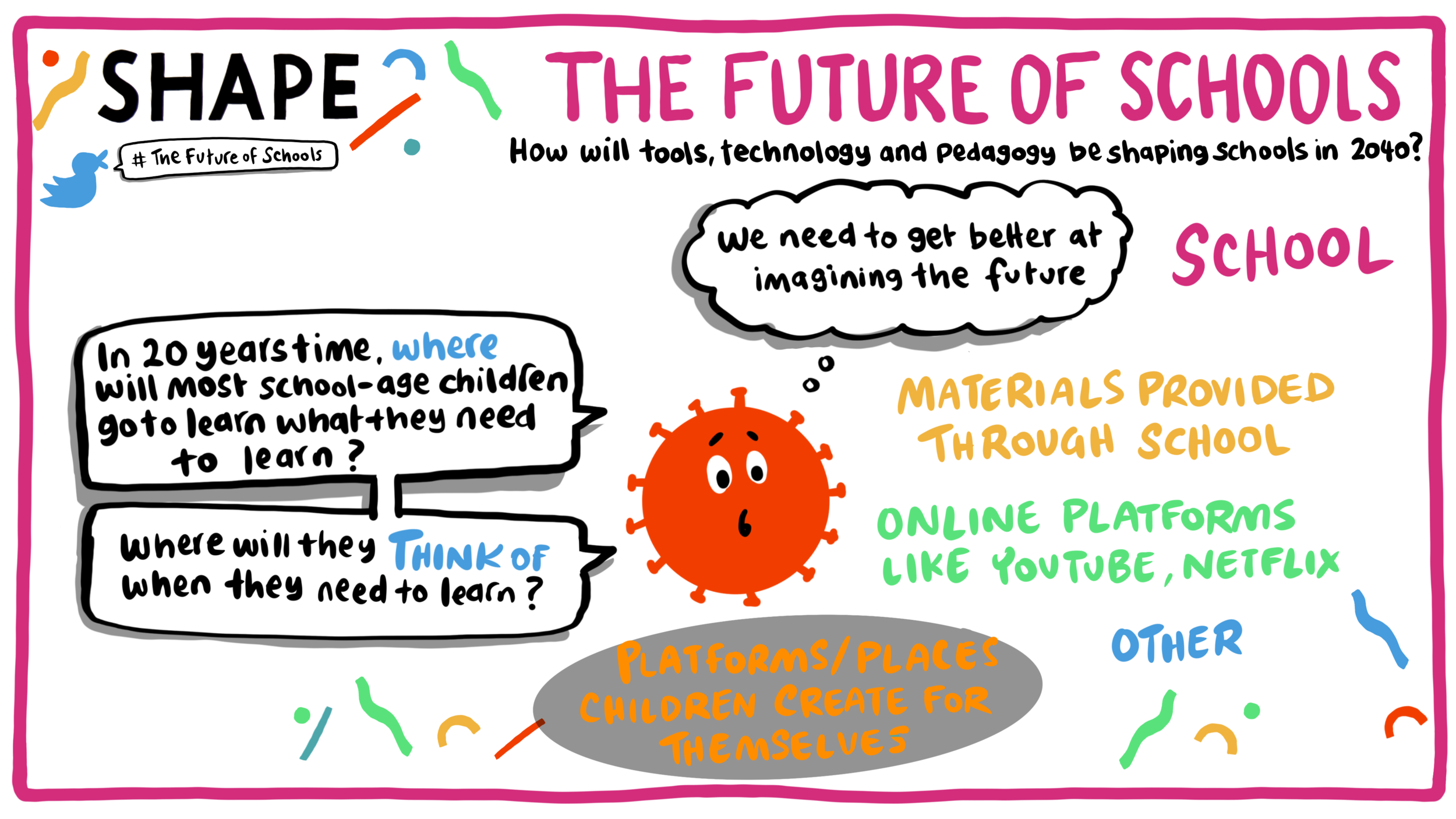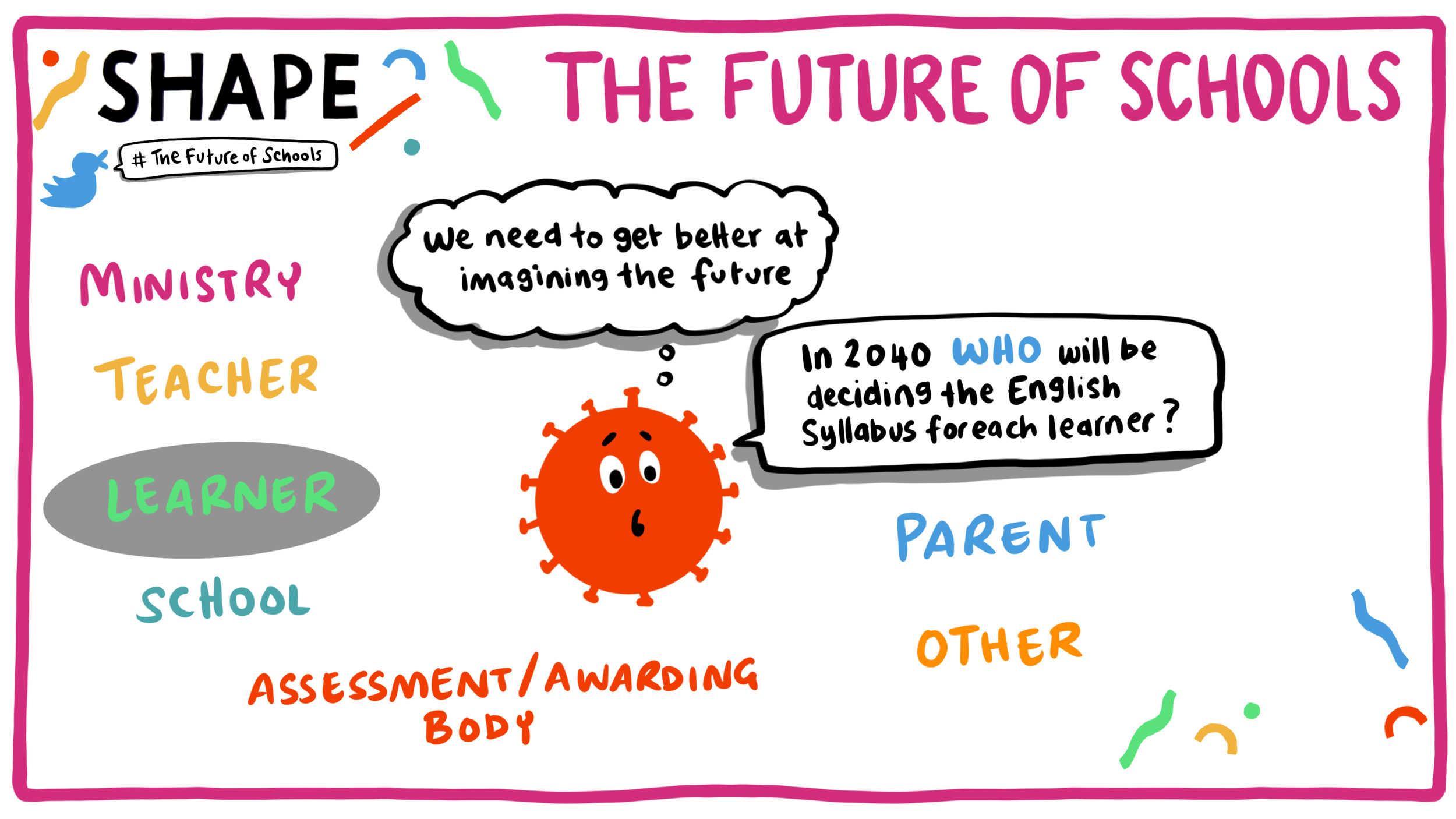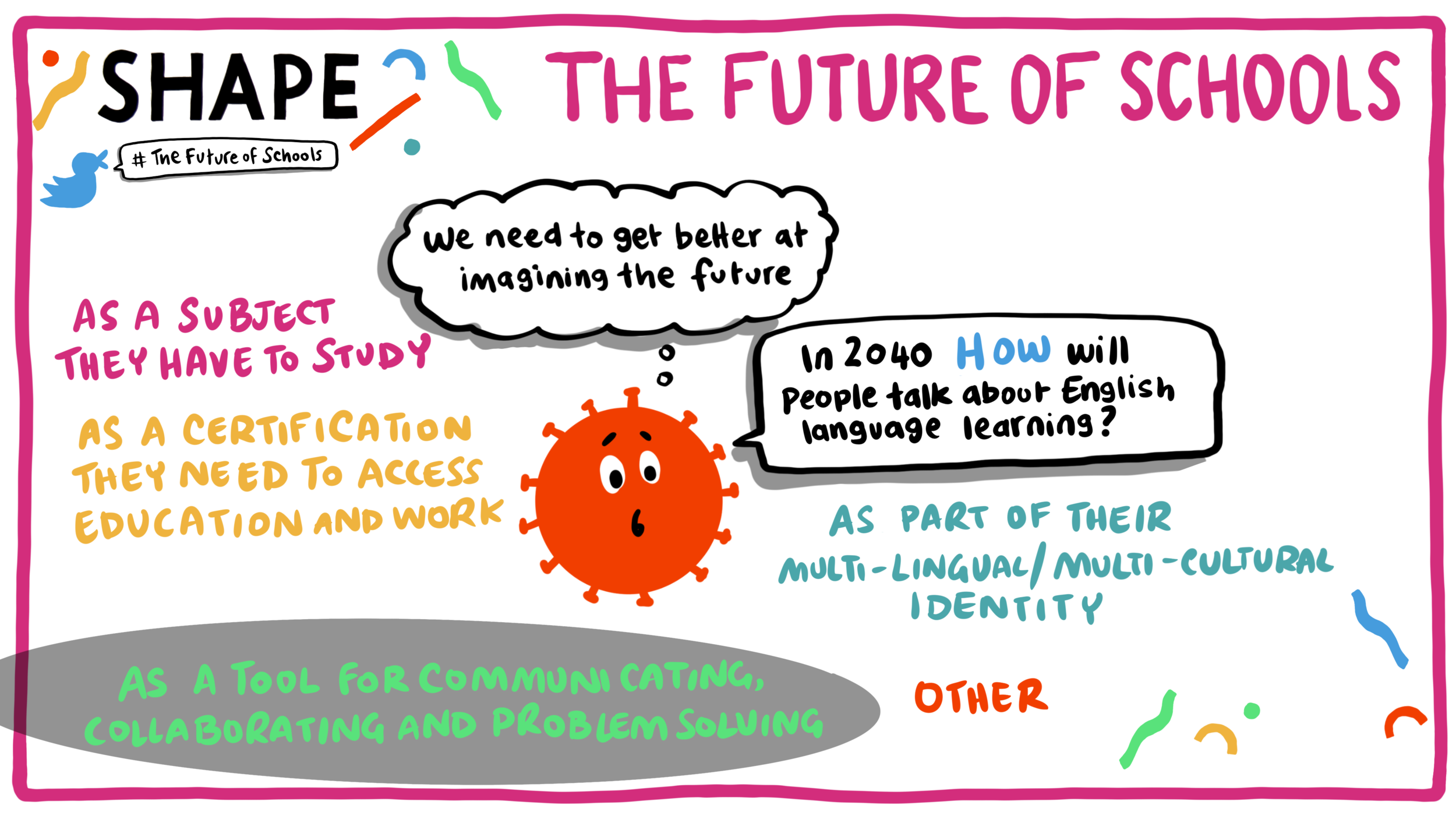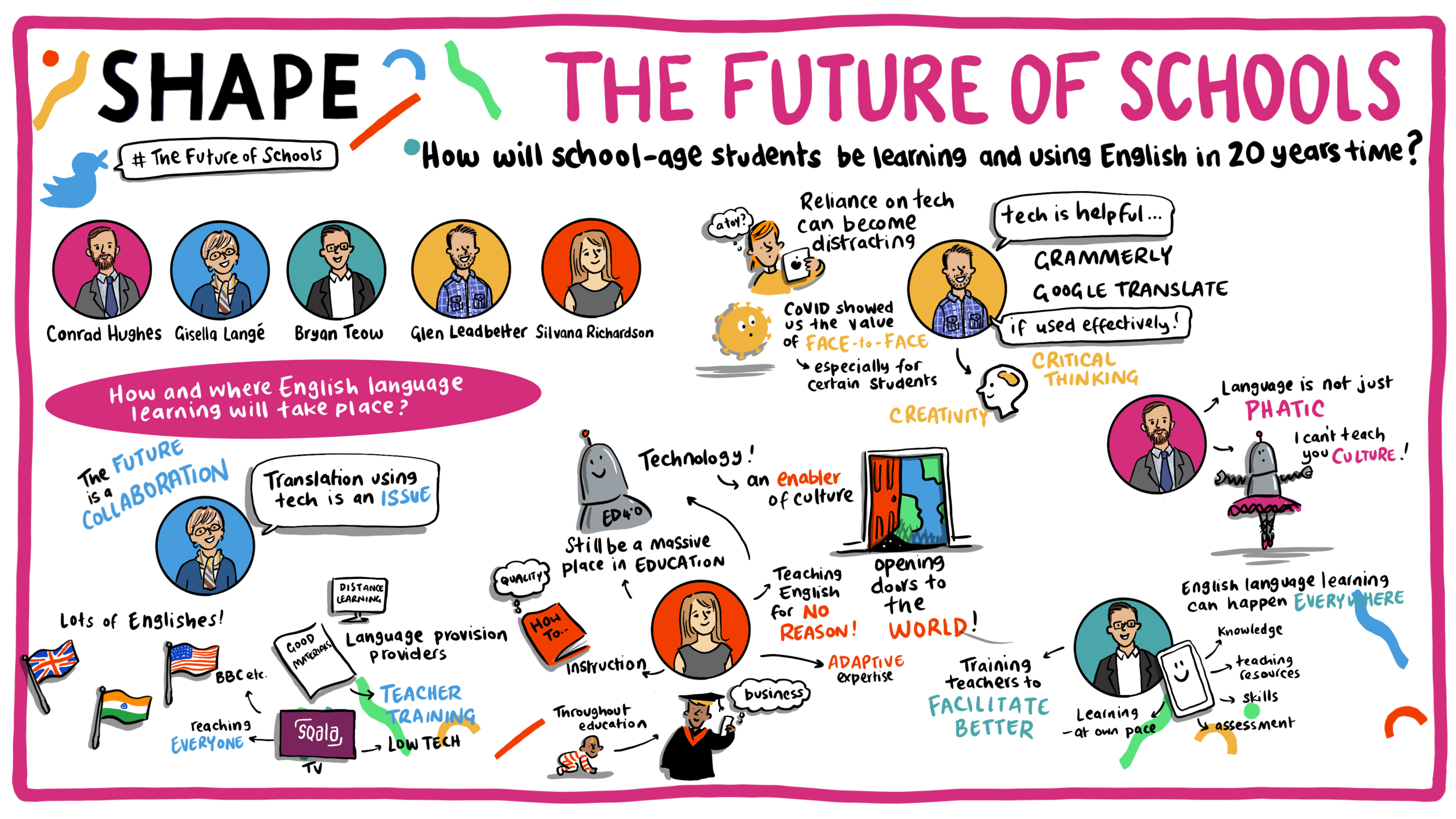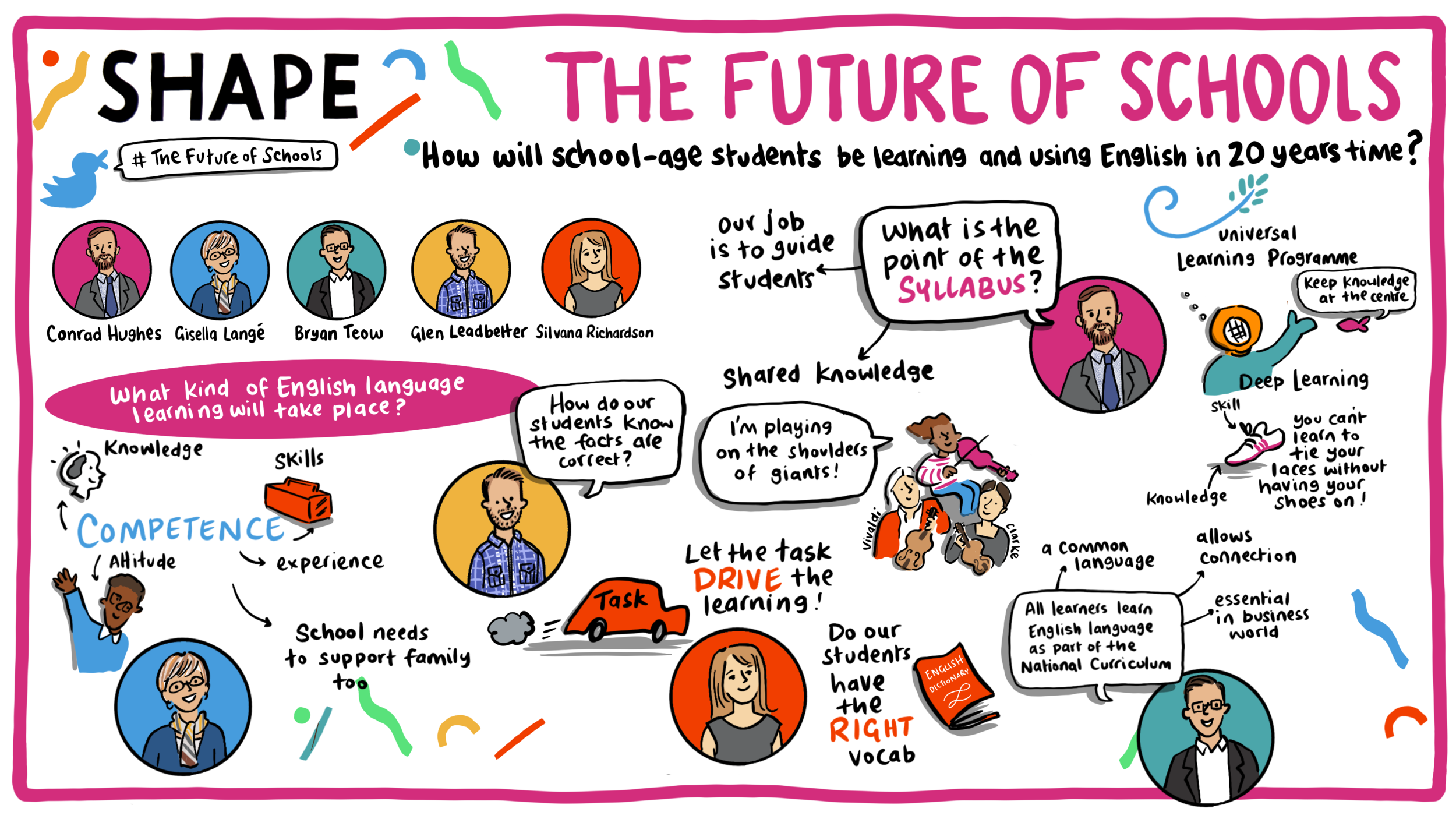The last year has taught us that we need to get better at imagining a range of possible futures. As we think about the different scenarios the world might face, how might those potential changes impact global education? What will English language learning and teaching in schools look like? We hosted a week of lively talks and debate around some key questions on the future of education with over 1000 participants from around the globe.
These opportunity areas were identified through analysis of themes and insights emerging through the event. They present areas of opportunity; where those invested in education can start (or continue) to make a difference.
Monday 12 July
How will societies across the globe change in the next 20 years?
The Covid pandemic, among other current crises, has brought tragedy and large-scale disruption and we are seeing accelerated change in the adoption of technologies and alternative models of working and schooling. As we move forwards socially, economically, technologically and environmentally, how will society look in different regions of our world? What will be shaping the ways we live, work and learn?
Tuesday 13 July
What will education look like 20 years from now?
There is much debate around which recent changes in schools will remain in place, whether we’ll ‘go back’ to what we had before and, more than ever, what society wants education to include. In 2040, what will be the priorities in education? Which innovations will have developed to meet the needs of young people preparing for their careers in a constantly changing world? And how will schools of the future be managing change?
Wednesday 14 July
What will individuals need to learn for success in work and life in the future?
As noted in the recent McKinsey Global Survey, nearly 90% of executives and managers already say their organisations face skill gaps and expect gaps to develop, and only a third say their organisations are prepared to cope with workforce disruptions resulting from technology and market trends. So what skills, knowledge and characteristics will employers need and be looking for in future? How will our education systems help people develop these within and beyond schools? And will relationships between schools and employers be any closer?
Thursday 15 July
How will tools, technology and pedagogy be shaping schools in 2040?
Technology and connectivity provide access to learning. If, in 2040, learners are able to learn anytime, anywhere through their devices, what will that learning look like? We’ve certainly seen huge investment in communication and content management platforms and lots of educational ‘games’, but we can do more than that. What will great digital learning and assessment look like in 20 years’ time? And what will we be doing in the face-to-face classroom?
Friday 16 July
How will school-age students be learning and using English in 20 years’ time?
How will wider societal, workplace, educational and technological changes impact on how English is used and studied both within and beyond school? Join our schools’ experts for an in-depth discussion looking back at key themes from the week and how they apply to the future of English language learning.
Find out more about all of our speakers.
Drawings by resident Graphic Recorder, Rebecca Osborne


